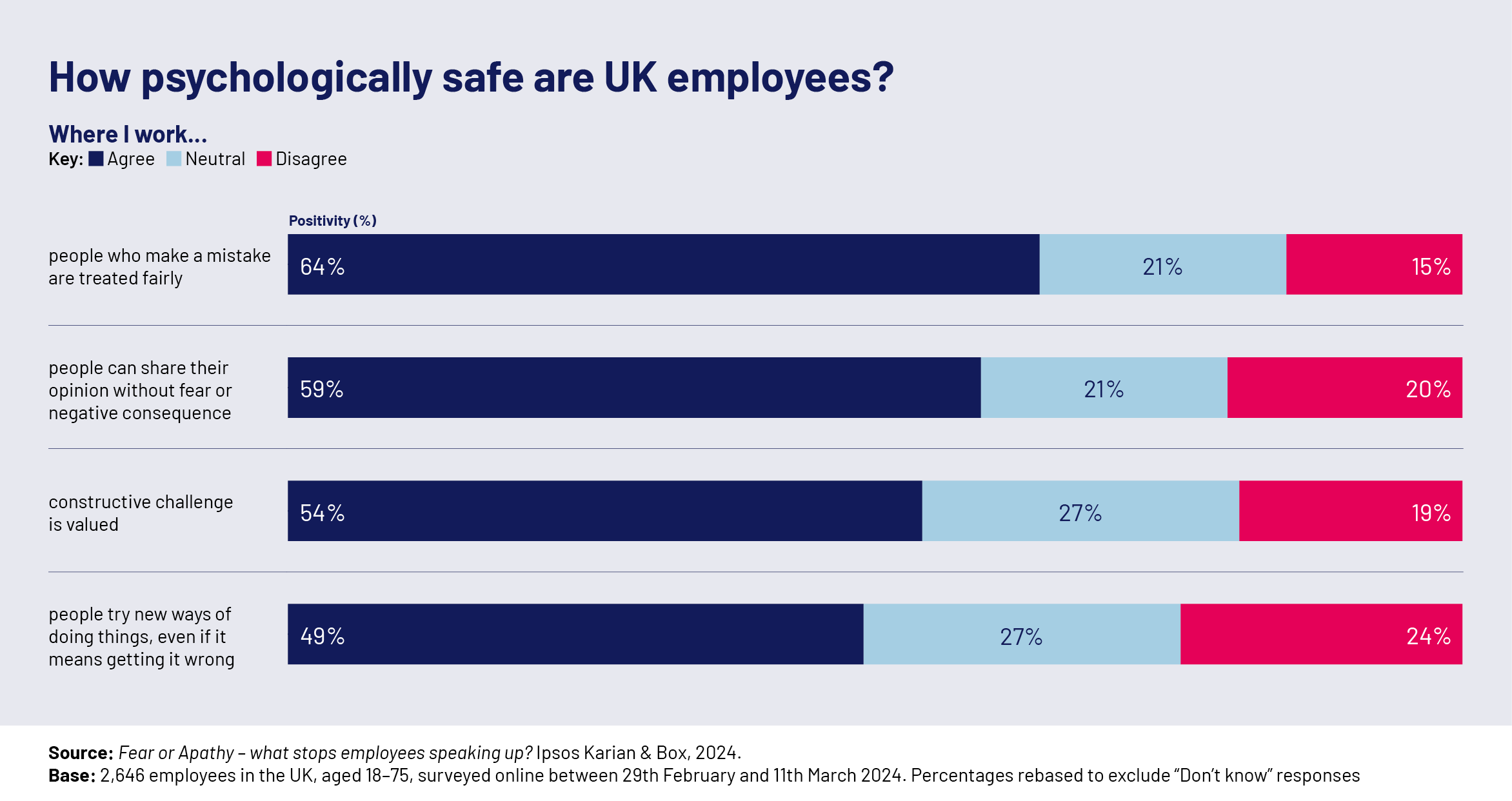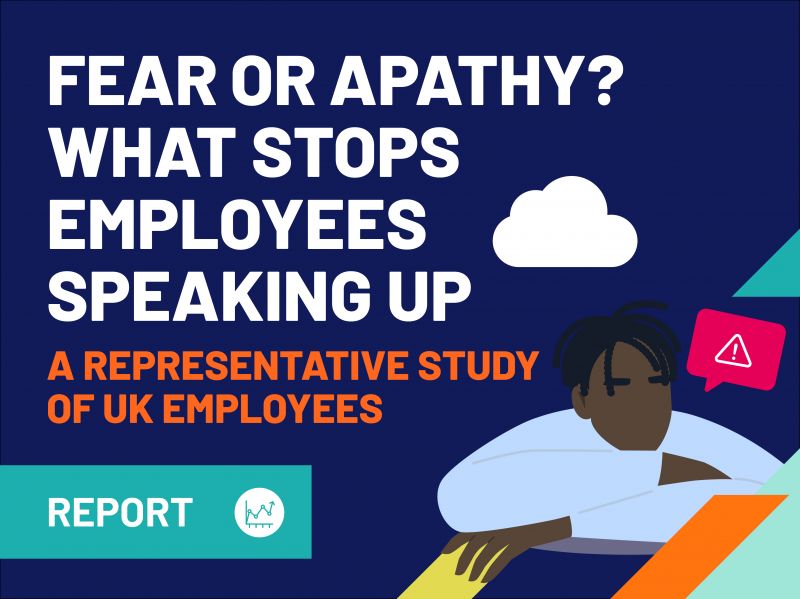How often do you see your colleagues confidently sharing ideas, even if those ideas challenge the accepted way of doing things? Do people speak up when they disagree, and are mistakes viewed as opportunities for learning?
If this sounds familiar – great! Your organisation has a culture of psychological safety.
Psychological safety, formally introduced by Dr. Amy Edmonson in the 1990s, is the shared belief that a team is a safe space for interpersonal risk-taking. It's the confidence that you can voice ideas, questions, concerns, or even admit mistakes without fear of negative repercussions.
This 'safe to fail' mindset is fundamental to high-performing teams. It unleashes innovation, with team members empowered to experiment and push boundaries. It's also directly linked to a safer work environment overall and better decision-making through diverse perspectives.
But what happens when psychological safety is absent? The consequences can be damaging. Imagine a team where a faulty product feature goes unchallenged due to fear of speaking up, potentially resulting in dissatisfied customers and financial losses.
The tragic example of Boeing's 737 MAX crashes highlights the devastating consequences of a culture absent of the ability to speak up. Investigations revealing a flawed automated flight control system alleged that some employees may have had concerns about the system but hesitated to voice them due to fear of retaliation and a culture that prioritised production speed over safety.
Our own research reveals a direct correlation between low psychological safety and increased safety incidents, absenteeism, and employee turnover. On an individual level, it can lead to chronic stress, anxiety, and burnout1.
Despite the clear advantages, many organisations still struggle to foster psychological safety. Our latest research shows that just over half of UK employees experience a workplace where they feel truly able to speak up, challenge the status quo, make mistakes, and innovate without fear2. This means a significant proportion of the workforce may be holding back, hindering their team's potential.

Before you can improve psychological safety, you need to understand your starting point.
While your observations can provide a general sense, a more structured approach is necessary for an accurate assessment. This is where measurement comes in.
Most organisations conduct employee surveys. By incorporating a robust measure of psychological safety, you can gain valuable insights into the experiences of your people.
But how do you effectively measure something as nuanced as psychological safety? A robust measure needs to capture its distinct characteristics: the ability to speak up freely, challenge constructively, and learn from mistakes without fear of punishment.
We've supported numerous organisations in assessing psychological safety. Through our experience, we've identified four key questions that provide a well-rounded view:
“Where I work…
- ...people who make a mistake are treated fairly
- ...people can share their opinion without fear of negative consequence
- ...constructive challenge is valued
- ...people try new ways of doing things, even if it means getting it wrong
Our research highlights that while all four elements are crucial, the ability to make mistakes and be treated fairly is paramount. This 'safe to fail' environment is what fuels innovation.
Diving deeper
Surveys provide a valuable snapshot in time, but to truly understand the factors driving psychological safety – and identify the right solutions to improve it – you need to dig deeper. Qualitative research methods, such as focus groups and interviews, provide the opportunity to explore the ‘why’ behind your data.
For example, in a recent engagement with a large multi-national organisation, our survey revealed declining levels of psychological safety in parts of the business. This was despite the organisation investing in various strategies to improve it. To understand why, we conducted a series of employee focus groups and leader interviews. This uncovered multiple experiences of employees sharing upwards ideas and feedback but seeing no action in response. The result? People stopped bothering speaking up and teams became disengaged.
So, ask yourself: does your organisation operate from a place of safety, fear or apathy?
Start by measuring psychological safety, then take action to create an environment where everyone feels empowered to contribute their best.

Interested in learning more about the workplace impact of psychological safety?
Dive into our Fear or Apathy? report to explore our findings and recommendations
Footnotes/ references
1Employees who experience all the markers of psychological safety are less likely to have felt under constant strain at work (vs. those who experience none of them). Source: Fear or Apathy – what stops employees speaking up? Ipsos Karian & Box, 2024. Base: 2,646 employees in the UK, aged 18–75, surveyed online between 29th February and 11th March 2024.
2Psychological Safety Index score across a UK sample (57%). Source: Fear or Apathy – what stops employees speaking up? Ipsos Karian & Box, 2024. Base: 2,646 employees in the UK, aged 18–75, surveyed online between 29th February and 11th March 2024.
Emily Cooke







